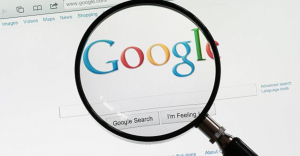The Department of Justice is readying itself to sue Google as soon as next month, according to a Bloomberg report.
The investigation is being refreshed as the DOJ is questioning publishers to refresh the facts of the case. According to the Bloomberg report, the government has prepped a series of interviews in the next two weeks which will build on questioning conducted in the earlier stages of the investigation.
Also Read: Why Big Tech mergers are bad news for everyday consumers
This is the DOJ’s second case against Google. In 2020, it had sued the search-engine company for its alleged domination of the online search market, claiming that it was violating antitrust laws. That same year, 16 states and Puerto Rico sued Google for monopolising the online digital advertising market.
Google’s spokesperson Peter Schottenfels told Bloomberg that the company’s ad technology “help websites and apps fund their content” and that the competition in online advertising had made “online ads more relevant, reduced ad tech fees, and expanded options for publishers and advertisers.” Last year alone, Google controlled 28.6% of the $211 billion in ad spending, Facebook 23.8% and Amazon 11.6%. That’s 64% of the market spending in the hands of three tech companies alone.
The antitrust lawsuit will be the government’s latest attempt to reign in the giants of Silicon Valley and is likely to boost the resolve of Lina M. Khan, the chair of the Federal Trade Commission. Khan, in her capacity as the chair of the FTC has been doggedly hounding big tech and doesn’t look like she’ll be giving up very soon.
Also Read: FTC to review Amazon’s iRobot acquisition for antitrust violations
Earlier this year in May, Amazon bought
out
Metro-Goldwyn-Mayer Studios, a media company that produces and
distributes film and television programs, for $8.5 billion, which the
trade regulator is investigating as part of an antitrust lawsuit. The FTC has sued Meta Platforms for its antitrust business practices. It is also investigating Amazon over
its ruthless acquisition strategy, especially its latest, the $1.7
billion purchase of iRobot, the company that makes Roombas.







